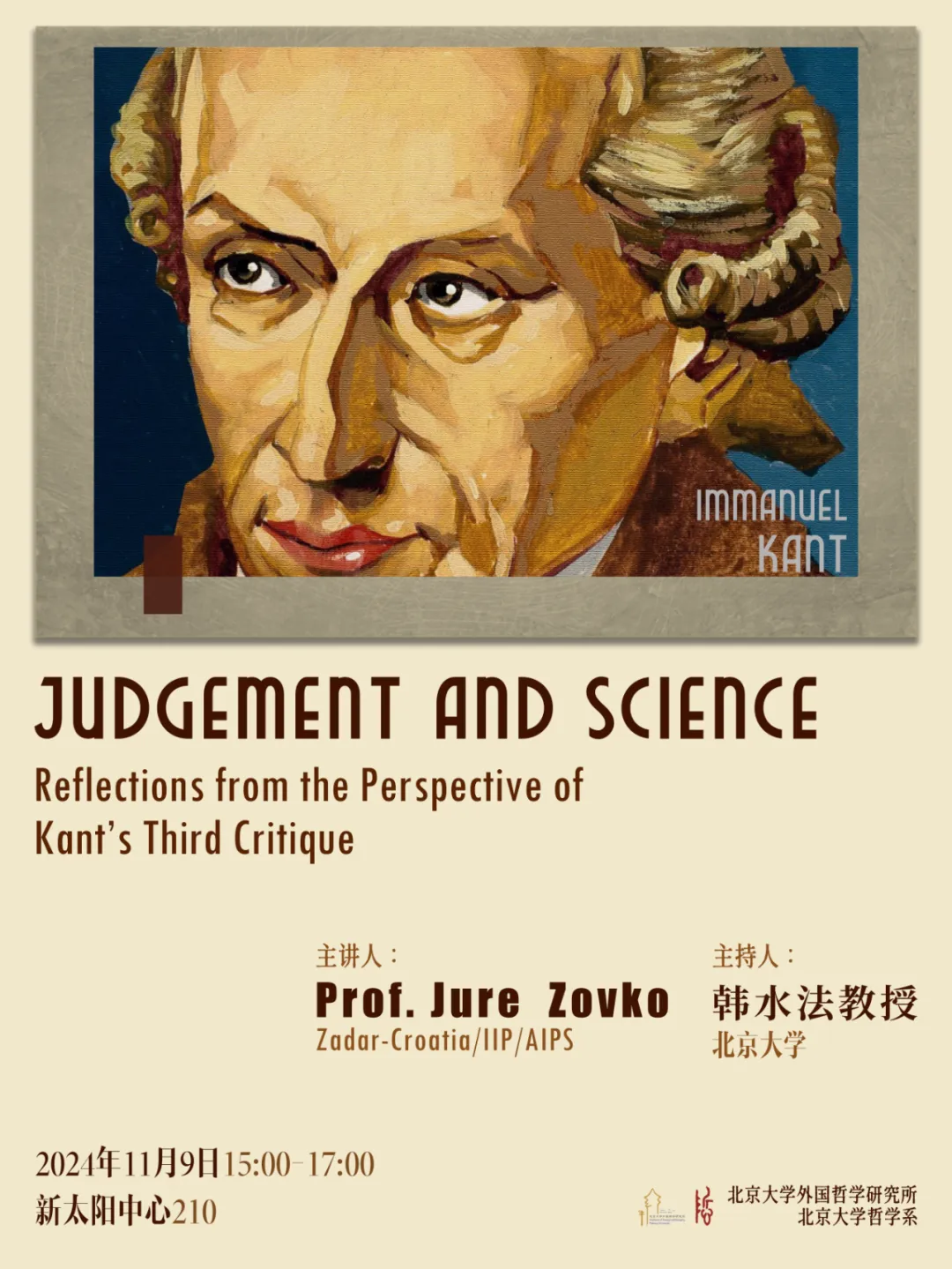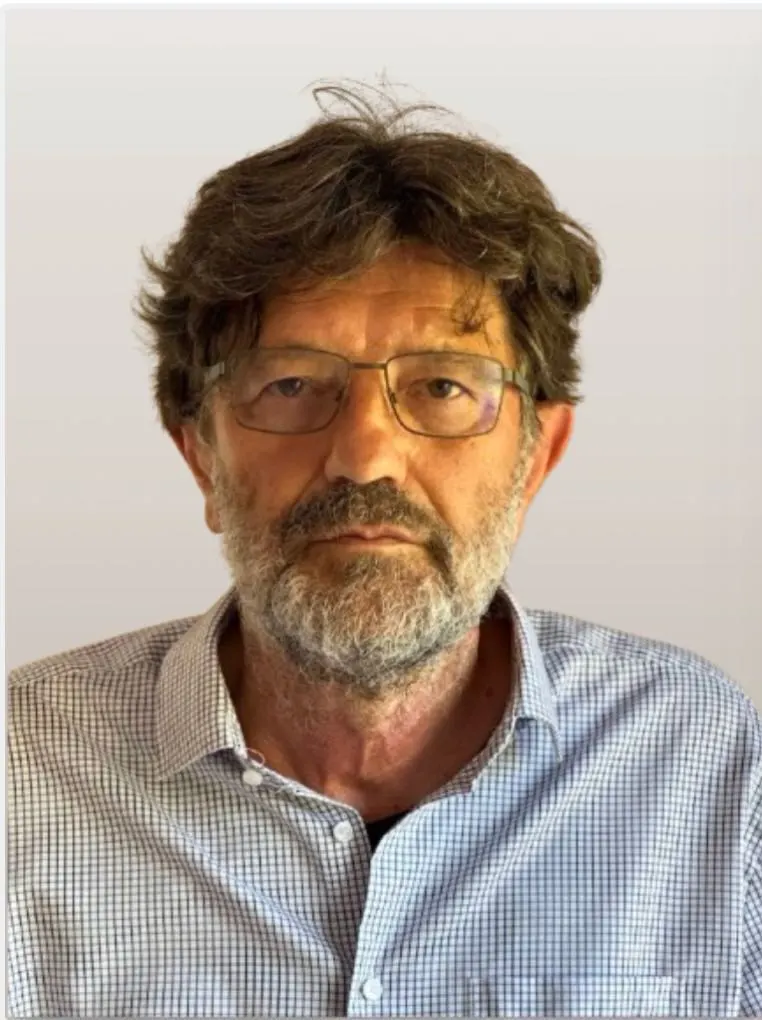11.09: Jure Zovko 教授讲座:Judgment and Science

题目:
Judgment and Science:Reflections from the Perspective of Kant’s Third Critique
主讲人:
Jure Zovko
克罗地亚扎达尔大学 名誉教授
主持人:
韩水法
北京大学哲学系 教授
时间:
2024年11月9日 15:00—17:00
地点:
新太阳中心210
报名链接:
校外师生如需入校参与讲座请扫描下方二维码进行报名。
校内师生无需扫码,直接前往即可。
Jure Zovko
The British philosopher of science Elie Zahar claimed in his essay "Conventionalism and Positivism", "that Kant was, among other things, one of the greatest philosophers of science of all time." (Zaher, 1980) Kantians were mutatis mutandis, according to Zahar, William Whewel, Ernst Mach, Pierre Duhem, Henri Poincaré, Émile Meyerson and Karl Popper. The relativity physicists and philosophers Hans Reichenbach, Adolf Grünbaum and Werner Heisenberg analyzed Kant's space-time concept in detail in their works and modified it with improvements.
Kant's significance for the philosophy of science has been discussed in the last century primarily with regard to Newtonian physics or classical mechanics, especially among German Neo-Kantians, who claimed that Kant had endeavoured intensively to deepen Newtonian principles of mechanics through epistemological principles in order to elaborate a metaphysics as a theory of science.
In my presentation I want to show why Kant's analysis of reflective judgment is of potential relevance for philosophy of science. In the Critique of Judgement (1790), instead of the "totality of experience", Kant introduces the already given unity of natural formations (Naturgebilde), which are taken as the starting point for reflective judgement. This turn in the third critique from the idea of the unity of reason to the reflexive power of judgment was made because more can be achieved through the teleology of nature than through the mechanistic explanation of nature. In the Critique of Judgment Kant analyses concrete cases sensitively and attentively in their holistic context with the help of reflective judgment. In order to adequately subsume concrete cases, the reflective judgment must first find the rules that are tested for their applicability. Through Kant's explication of reflective judgment, the heuristic method, which is particularly important for scientific theory, comes to the fore.
The organic world with its inner purposefulness cannot be made plausible on the basis of mechanical laws, but is investigated by the reflective power of judgment. Biological purposefulness remains the pivot of reflective judgement, which on the one hand implies the scientific practice of research into the final cause, and on the other brings the understanding of the world of life, the crown of which remains man with his moral dignity.




